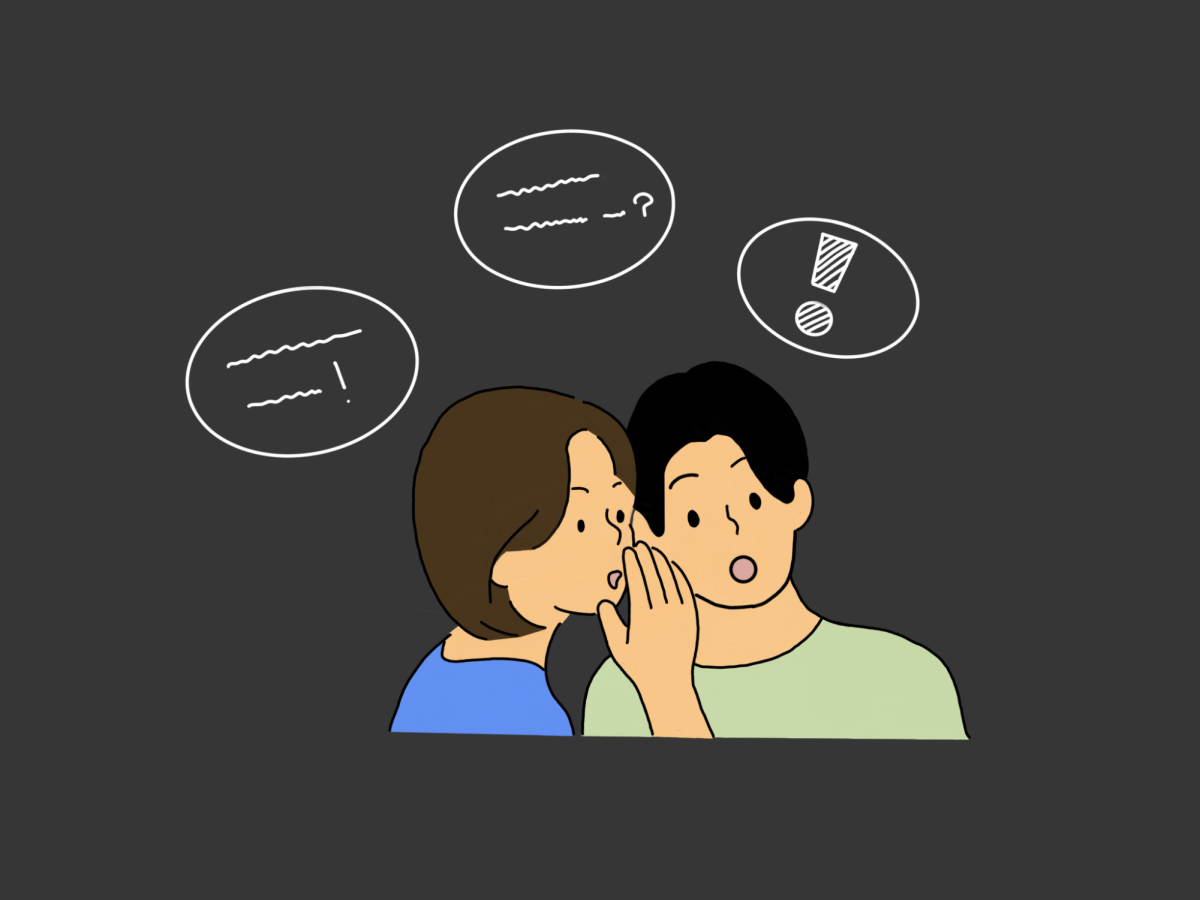Rumors are an inevitable aspect of high school life. Regardless of whether it is true, information permeates throughout the student body. Even the most coveted secrets shared with a handful of friends could easily become known schoolwide, including among teachers and staff members. Given such circumstances, when summatives, extracurriculars, and events constantly bombard our busy lives, how detrimental is the rumor culture at SIS?
“A lot of behaviors can be understood in terms of evolution and how certain behaviors were adapted to help humans survive,” Chris Bracciano, AP Psychology teacher, said. “In a small community, like the ones our ancestors lived in, [rumors] would get back to you. If society did not like your behavior, gossip was a way to alter your behavior to better fit society. Now that we live in a much more complicated society than we did back then, gossiping behavior that could be viewed as useful in an ancient and distant context could now be problematic.”
Rumors are an indirect way to alter one’s behavior to better conform to society’s expectations. It revolves around behaviors and habits—things that weren’t blatantly harmful to society but something that annoyed or went against society’s values.
Gossip and its effects have changed over time as communities began to grow. Rumors are easily blown out of proportion, twisting minor comments to critiques of one’s identity or disposition.
One factor that plays a huge role in gossip at SIS is the cultural background of the school. Korean culture and traditions could be beneficial to building close relationships, but it is also more susceptible to rumors.
“Anthropologists and sociologists note that Korean and other East Asian cultures tend to be more group-oriented rather than individually oriented,” Mr. Bracciano said. “This means that [South Koreans] may be more sensitive or susceptible to the kind of group pressure that gossip represents.”
Moreover, spreading rumors creates a false sense of belonging. When students struggle to join a friend group, they may see gossip as an opportunity to gain attention, naturally getting closer as the gossip progresses. New students, who feel foreign to the new environment, may feel more pressured when there are expectations from peers around them.
Furthermore, the increasing usage of social media has increased and encouraged gossip. Messages and photos are sent in group chats in seconds, accelerating rumors. The lack of privacy in social media applications also plays an impactful role in gossip.
“I hear most rumors in the hallways or conversations that happen during breaks,” Ben Lee (10), a gossip participant, said. “But ever since people started using Instagram, Snapchat, and other apps, more rumors have been circulating there, too. Many rumors start there since messages are usually spread with photos and short videos of what happened. A lot of rumors also start from DMs [direct messages] that are shared between students. Since the conversations in DMs don’t disappear, I feel like it also creates a lot of rumors.”
The problem with gossip is that it is damaging to the student body. New students who are more introverted end up being ostracized and left out of conversations, furthering the gap between students. When misleading or exaggerated remarks about certain students and teachers are in constant circulation, they can easily result in broken relationships and trust in the community.
Preventing students from conversing about such sensitive topics and spreading rumors around campus is unfeasible. There will be rumors throughout SIS whether they are constructive or damaging to the integrity of SIS.
Nevertheless, SIS should work together toward a school environment where students can address sensitive topics comfortably. We should strive to become a student body that presents itself as trustworthy individuals and effective communicators, making SIS a more inclusive and inviting community to new and old members.


